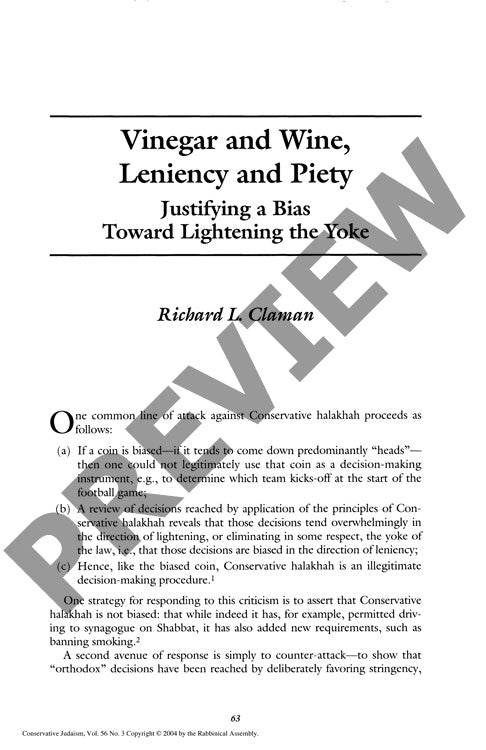Vinegar and Wine Leniency and Piety
Couldn't load pickup availability
Is Conservative Judaism's tendency toward lenient legal rulings a betrayal of halakhic principles or a legitimate expression of Jewish law? By examining Talmudic discussions - particularly the evolution of waiting periods between meat and dairy consumption - this research reveals how practices originally rooted in individual piety transformed into universal stringent norms during the post-Talmudic era. Traditional justifications for leniency, including *safek de-rabbanan le-kula* and *pikuah nefesh*, prove insufficient to defend comprehensive lenient approaches. However, a novel theoretical framework grounded in covenant theology offers stronger validation: the doctrine of mutual responsibility among Jews and the concept of Election support removing unnecessary barriers to full Jewish participation. This covenant-based reasoning suggests halakhic rules should create only those obstacles necessary to effectuate core Jewish values. Historical and textual analysis demonstrates that Conservative Judaism's apparent bias toward leniency reflects legitimate halakhic principles rather than unprincipled decision-making. This framework successfully validates lenient options while preserving space for individual piety within a pluralistic halakhic system, indicating both stringent and lenient approaches serve vital functions in contemporary Jewish legal practice.

More Information
-
Physical Description
-
Publication Information
Published 2004
ISBN
-
Publication Credits
Richard Claman

